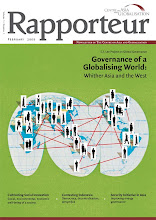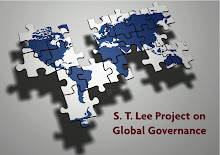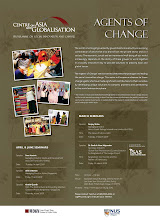This week’s collapse of the trade negotiations in the so-called
The failure of the negotiations is to be expected. The problem is that liberalising reform creates winners and losers – something that even the best spin doctors cannot conceal. Subsequently, pressures to liberalise create their very own constituencies of resistance – one of the great contradictions of liberal economic reform.
In 2003,
Trade liberalisation measures in an increasingly unequal and politically fractured world were always going to be a very difficult undertaking. This is because the costs and benefits attendant to trade liberalisation measures are asymmetrically dispersed; the benefits of comparative advantage are far from appreciated by the worker who used to make a protected product but is now unemployed because their job has moved from one country to another. Nor are they appreciated by the protected farming conglomerate who receives hearty subsidies.
Likewise, in the underdeveloped world the savvy use and abuse of particular trading arrangements by the developed world has made many cynical about the potential for trade opening measures to improve their lot. In the end divergent interests often shape policy outcomes.
So, the question is should the defibrillator be charged and applied to the depressed chest of
The most likely outcome in the current global environment is the continuation of two processes that liberalisation measures have actually assisted in facilitating: the continued strengthening of protectionist and nationalist responses to the contradictions of globalisation and the further negotiation of select bilateral and other trade deals, where mutual interest is more readily accommodated.
To be sure, both processes have been in motion for some time. While you would think by now that the politics of economics would be more than apparent to neo-liberals, ideology is a powerful thing – so powerful that it even leads some to believe that they can revive the dead.
Let’s accept that the dead can’t be revived. What next? Perhaps out of
Given the assault that individualism has waged on the collective imagination in the last couple of decades this is sure to be a real challenge. However, such challenges are best tackled when the dominant paradigm is under siege, its legitimacy in tatters.
In this regard, nascent potential resides in social forces such as the Fair Trade movement, which has only fairly recently begun to make waves, albeit modest ones. Certainly, there are critics to this movement: the right see it as a subsidy, the left as a sell-out to capitalism. But its success in providing an alternative approach to commerce is surely not to be dismissed. Against the seemingly impenetrable forces of government and big business is an array of small producers who have been enrolled in the market in a way that can better reward the efforts of the marginalized by shortening trade chains and guaranteeing better prices.
Alternatively, solutions stemming from marginalised actors themselves could also generate positive social change. The point is that under globalisation technocratic liberal policy, such as that of the WTO, has benefitted the few at the expense of the many. Indeed, in part as a result of this, such approaches have now reached a political impasse, where they have no broad-based legitimacy in either the developed or the developing world. As such, its potential to be further implemented is virtually non-existent, without the use of brute force.
Subsequently, it’s time for more popularly-supported, trans-national approaches to development to take to the global stage.
It’s time to put equity into development. [Tess & Toby]










No comments:
Post a Comment